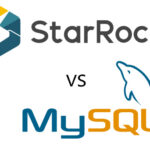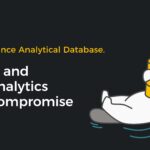When you comes to choosing between MySQL and MariaDB, two popular open-source relational database management systems (RDBMS), performance is a critical factor. In this in-depth comparison, we’ll delve into the key performance aspects of MySQL and MariaDB, empowering you to make informed decisions for your clients.
1. Raw Performance and Scalability:
Both MySQL and MariaDB demonstrate impressive performance capabilities, each with its own strengths:
- MySQL: MySQL boasts a long history of optimization, making it a mature and performant choice for a wide range of workloads. It excels in handling simple queries and transactional applications.
- MariaDB: MariaDB, a fork of MySQL, incorporates enhancements and optimizations aimed at improving performance. It often outperforms MySQL in complex queries and workloads involving large datasets.
2. Specific Workload Optimization:
When dealing with specialized workloads, consider these strengths:
- OLTP (Online Transaction Processing): For high-volume transactional workloads, MySQL’s mature architecture and extensive optimization for InnoDB, the default storage engine, make it a solid choice.
- OLAP (Online Analytical Processing): For complex analytical queries and data warehousing scenarios, MariaDB’s enhanced query optimizer and support for newer storage engines like Columnstore may provide an edge.
3. High Concurrency and Scalability:
As your application grows, the ability to handle increasing workloads and concurrent users becomes paramount:
- MySQL: MySQL’s multi-version concurrency control (MVCC) architecture efficiently manages concurrent transactions, making it scalable for high-traffic applications.
- MariaDB: MariaDB’s MVCC implementation, Galera Cluster, offers enhanced scalability and fault tolerance for distributed deployments.
4. Feature Richness and Extensibility:
Both MySQL and MariaDB offer a comprehensive set of features and extensibility options:
- MySQL: MySQL boasts a vast array of extensions, plugins, and third-party tools, making it a versatile platform for diverse applications.
- MariaDB: MariaDB actively incorporates new features and enhancements, often drawing inspiration from MySQL and the wider database community.
5. Community Support and Resources:
Both MySQL and MariaDB enjoy strong community support and extensive documentation:
- MySQL: MySQL benefits from a large and active community, providing ample support forums, documentation, and learning resources.
- MariaDB: MariaDB’s community is passionate and growing, offering active support channels, documentation, and contributions to the project.
Benchmark Results
Query: SELECT CounterID, AVG(length(URL)) AS l, COUNT() AS c FROM hits WHERE URL <> ” GROUP BY CounterID HAVING COUNT() > 100000 ORDER BY l DESC LIMIT 25;

Query: SELECT SearchPhrase FROM hits WHERE SearchPhrase <> ” ORDER BY SearchPhrase LIMIT 10;

Query: SELECT UserID FROM hits WHERE UserID = 435090932899640449;

In conclusion, both MySQL and MariaDB are powerful and performant RDBMS options, each with its own strengths and suitability for specific workloads. MySQL’s maturity, large community, and extensive ecosystem make it a reliable choice for general-purpose applications. MariaDB’s focus on innovation, enhanced performance for complex queries, and Galera Cluster for scalability make it an attractive option for data-intensive and distributed applications.





Leave a Reply